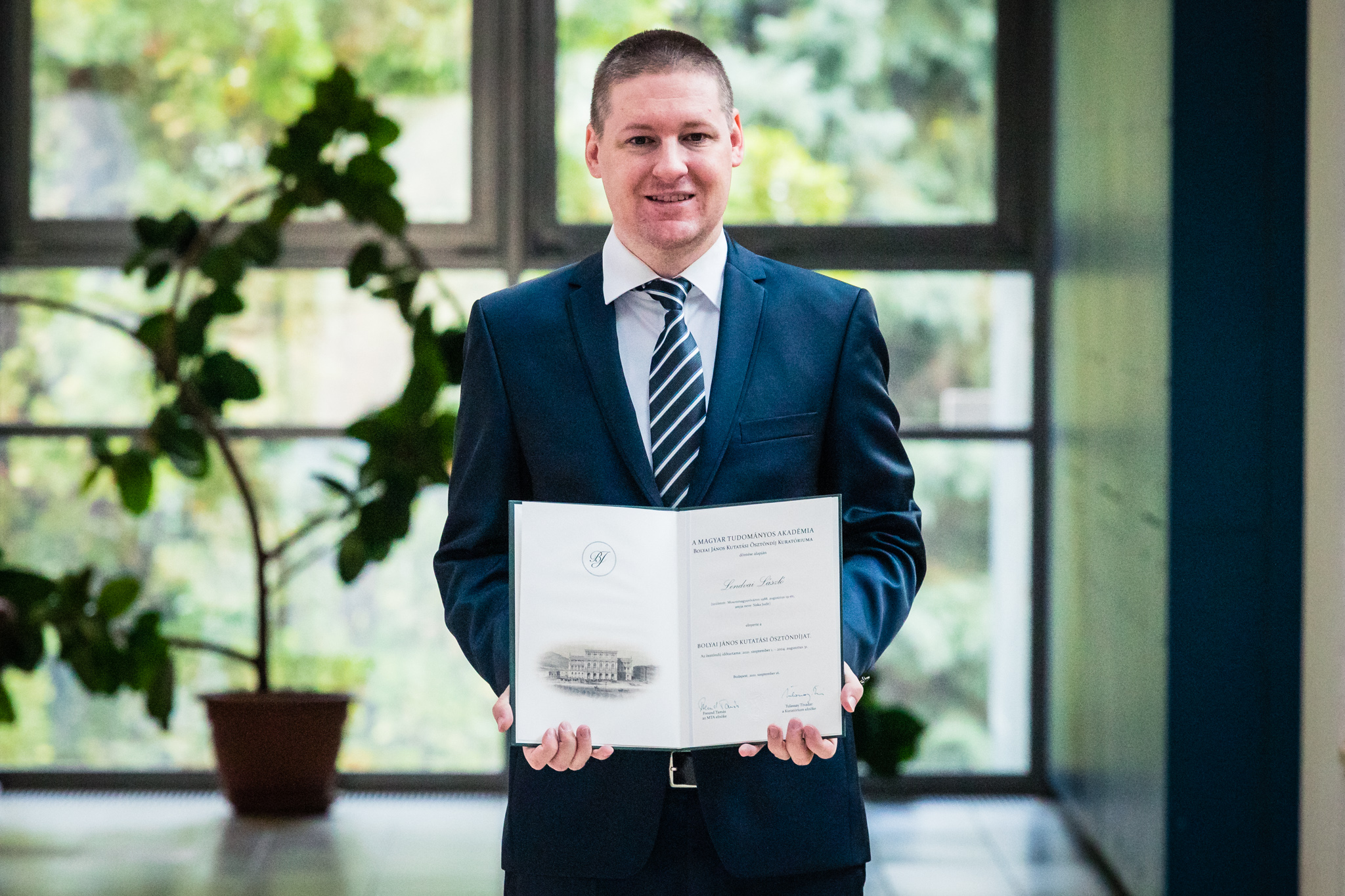SZE Bolyai Scholar’s research goal is sustainable development
 In addition to pure petroleum derivative-based resources, plants can be used to partially replace plastics, which could make a major contribution to sustainable development. This is the field of research of Dr László Lendvai, an assistant professor at Széchenyi István University, who has been awarded the Bolyai János Scholarship by the Hungarian Academy of Sciences.
In addition to pure petroleum derivative-based resources, plants can be used to partially replace plastics, which could make a major contribution to sustainable development. This is the field of research of Dr László Lendvai, an assistant professor at Széchenyi István University, who has been awarded the Bolyai János Scholarship by the Hungarian Academy of Sciences.
Since 1998, the Hungarian Academy of Sciences has been awarding the Bolyai János Research Fellowship to young researchers under the age of 45 with a doctoral degree. The jury takes into account the applicants' achievements and research plans for the following period. This year, Dr László Lendvai from the Department of Materials Science and Technology at Széchenyi István University was awarded the prestigious prize.
The assistant professor's focus is on sustainability, in line with the University of Győr's emphasis on complex research and education in sustainable development, and its investments are also concentrated on sustainability.

Dr László Lendvai has been awarded a three-year research fellowship.
(Photo by József Csaba Májer)
"A widely studied, but even today a challenging area is how to replace part of petroleum by-products in the production of plastics with by-products from industry or other areas. This could reduce the ecological footprint and achieve property modifications such as greater rigidity and strength. In the automotive industry, many less stressed components are already made from such plastics - taking into account aspects of the circular economy,” explained Dr Lendvai.
“I am investigating what happens when plastic is filled with agricultural or forestry by-products - wheat, barley and rapeseed straw or dust generated from grinding wood derivatives - that would otherwise be burned, thus polluting the environment. I have chosen these materials because they are produced locally in large quantities, which could be a big advantage if my research produces marketable results."
The assistant professor added that his project aims to create 3D printable plastics by combining these powders and investigating what needs to be done to make them less sensitive to environmental conditions during processing. One of the most important of these external factors is humidity, as these plastics can become increasingly susceptible to absorbing humidity from the air through the addition of vegetable additives, which without drying prior to processing can significantly degrade their mechanical properties.
Dr Lendvai stressed that he is grateful to Dr Ibolya Zsoldos, Head of the Department of Materials Science and Technology, whose professional and personal support has been of great help to him over the past years.
Széchenyi István University has also made a major contribution to the results achieved thanks to the infrastructure improvements it has made in developing scientific research laboratory facilities of an international standard.
The assistant professor also considered it important to mention the late Dr József Karger-Kocsis, who, as his doctoral supervisor, provided an excellent basis for his research career.











